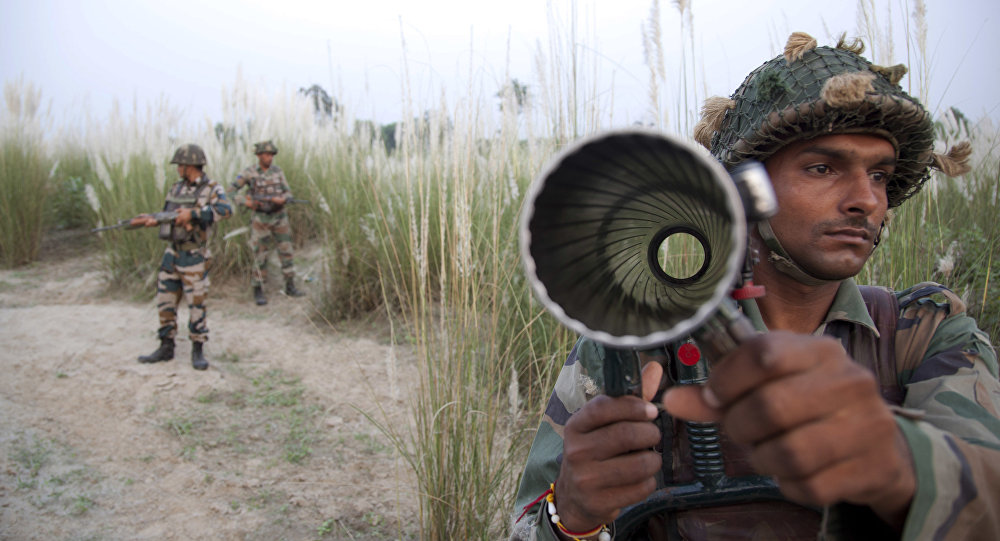India, Pak Show No Restraint: Soldiers, Civilians Hit Hard

NEW DELHI: Gunfire and fighting saw a sharp escalation along the Line of Control on Wednesday, as nine civilians were reportedly killed on a bus one day after India promised retribution for the killing of three of its soldiers.
The escalation has barely made headlines, as India’s media and political circles deal with the impact of the recent move by Narendra Modi’s government to demonetise 500 and 1000 rupee notes. As cross border firing between India and Pakistan has been increasing over the last few months, on Wednesday, both countries opened fire on civilian targets in the sectors of Machil, Keran and Gurez. Firing impacted the Kishanganga dam project, forcing workers to take shelter in the tunnels there, and the villages of Kanzelwan, Kufri and Malikpora were also hit.
The escalation comes after India vowed “heavy retribution” for the killing of three of its soldiers, one of whom was found mutilated, after Pakistani personnel crossed the Line of Control in Machil, North Kashmir. India condemned the “cowardly act” and promised retribution. This is the second time in recent weeks that an Indian soldier’s body has been found mutilated.
On Wednesday, India hit back, with Pakistan alleging that India opened fire on a bus in the Neelam Valley on Pakistan’s side of the Line of Control, killing nine passengers and seriously wounding nine others. Pakistan added that the Indian military also fired on rescue workers in an ambulance trying to reach the wounded.
Separately, Pakistan alleges that the Indian military killed three Pakistani soldiers, including a captain and Pakistani forces retaliated killing seven Indian soldiers.
Rhetoric accompanied the violence, as the two countries exchanged a volley of threats. India and Pakistani DGMOs spoke on Wednesday, with Pakistan’s Director General Military Operations Maj Gen Sahir Shamshad Mirza telling his Indian counterpart Lt Gen Ranbir Singh that Pakistan reserves “the right to respond at the place and time of our choosing.” India too issued a statement saying that Lt Gen Singh warned Pakistan against retaliating, and that ceasefire violations or infiltration attempts from Pakistani territory would invite “appropriate response from the Indian Army”.
India also summoned Deputy High Commissioner Syed Haider Shah as a measure of protest of the violence. On his part, Shah too raised "the recent spate of unprovoked Indian firing and shelling" which, he claimed, had so far resulted in the loss of more than 50 civilians -- the highest since the two countries signed a ceasefire in 2003. Shah called the attack on the bus and ambulance “a serious escalation of the situation” and a “grave breach of international and humanitarian law.”
Pakistani Prime Minister Nawaz Sharif spoke on the developments on Wednesday, saying that “India has failed to comprehend the gravity of the situation.”
India, on its part, has defended its actions. “It was a proper fire assault from our side as a retribution of yesterday’s incident,” said Brigadier Gotra, referring to the killing of three Indian soldiers on Tuesday, without commenting on Pakistan’s allegation that the Indian attack targeted civilians across the LoC.
The escalation in fighting has been building up for weeks, ever since an attack on an Indian military base in Uri that killed 19 soldiers. India responded with what it calls “surgical strikes” -- as it crossed over the border into Pakistani territory targeting militants along the LoC.



